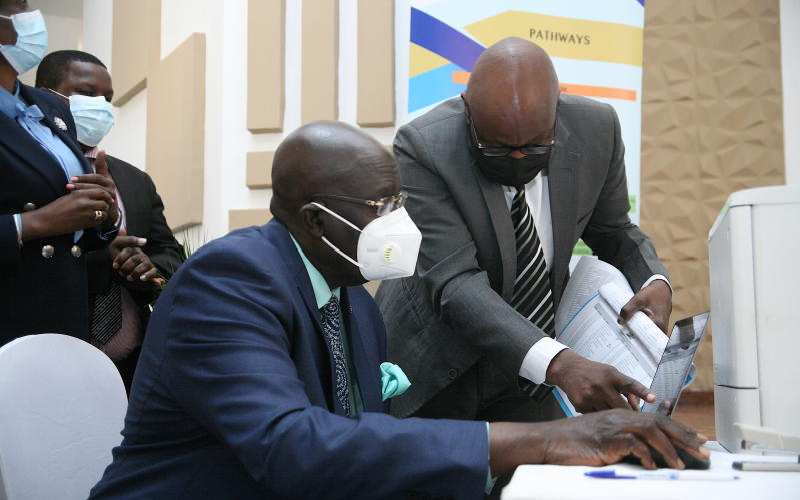×
The Standard e-Paper
Fearless, Trusted News

Deputy Director Ministry of ICT Patrick Njoroge shows Education Cabinet Secretary Prof George Magoha how form one selection will be done online during the release of 2021 form one selection and placement results.[Wilberforce Okwiri,Standard]
Easier said than done. Schools and universities want students to pay fees without fail. Much as the government keeps humming the well-meaning intention that no student should be sent home for lack of school fees, the reality on the ground is completely different.